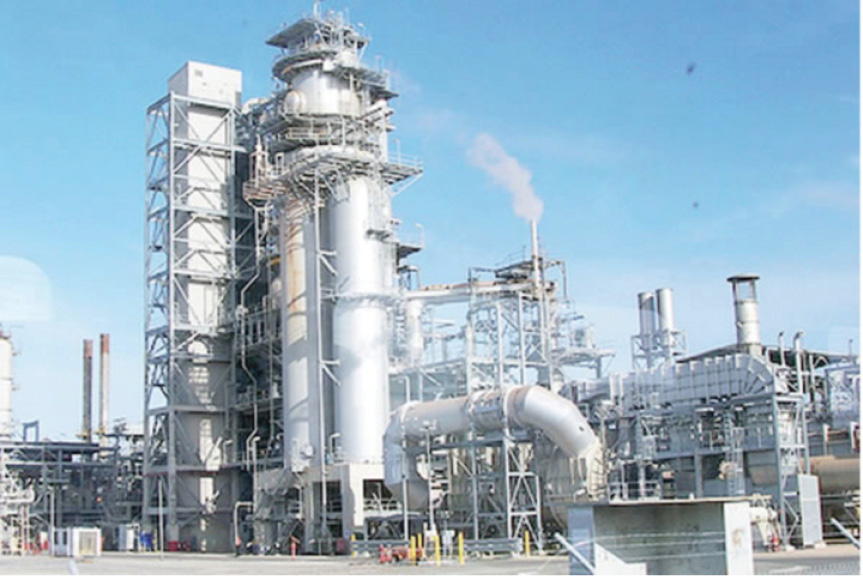Bring back our refineries
On a working visit to the Port Harcourt refinery, the Minister of State for Petroleum Resources, Heineken Lokpobiri, assured that the ongoing rehabilitation of the refinery will be completed in December this year as promised by President Bola Ahmed Tinubu, to enable it come to on stream. The minister also gave assurance on similar works […]

Ailing refineries
On a working visit to the Port Harcourt refinery, the Minister of State for Petroleum Resources, Heineken Lokpobiri, assured that the ongoing rehabilitation of the refinery will be completed in December this year as promised by President Bola Ahmed Tinubu, to enable it come to on stream.
The minister also gave assurance on similar works going on in the Warri and Kaduna refineries.
On the Warri refinery, he said the facility would be completed and delivered in the first quarter of next year while the Kaduna refinery as well as the privately owned Dangote refinery will come on stream towards the end of next year.
According to the minister, when the rehabilitation of the three refineries are completed and the Dangote refinery commissioned earlier this year starts functioning, fuel importation into the country will be drastically reduced, if not stopped altogether. This will enable Nigeria to reap the benefits of deregulation of the oil and gas sector, he said.
UNICEF warns of $100bn economic loss over conflict in Northeast Nigeria
Xinhua seeks partnership with Media Trust Group
Ordinarily, this should be cheering news for Nigerians who are virtually at the end of their patience with developments in the oil sector where very few positive results have been recorded.
Nigerians lament that the oil sector which ought to be the fulcrum of the country’s development and growth as in many other countries, has instead become a cesspool for massive corruption and unfulfilled promises over the years. For instance, Nigerians cannot fathom the fact that as one of the largest producers of crude oil in the world, the country still imports the commodity at great cost, which has led to scarcity of forex and high cost of good.
Nowhere is this exemplified than in the issue of refineries. The four refineries, two located in Port Harcourt, one each in Warri and Kaduna, have a total refining capacity of 445,000 barrels per day. By all accounts, if all these refineries are up and working, they will meet the requirements of the Nigerian domestic market for petroleum products. Also, the fact that crude oil is produced in Nigeria takes care of the sourcing challenge as the country does not need to import the commodity to feed the refineries.
But over the years, these refineries built at great cost to serve the purpose of self-sufficiency in petroleum products have been allowed by commission or omission to atrophy. The required Turn Around Maintenance (TAM) to keep them functioning optimally has been turned into an avenue for siphoning funds appropriated for the purpose. Over the years, as the cost of refurbishing the refineries grows exponentially, Nigerians hear of huge amounts of money voted ostensibly for that purpose. What is even more galling for Nigerians is that despite the stop-gap measure of government providing licences for importation of refined petroleum products, the scarcity persisted. We note too that attempts by the Olusegun Obasanjo administration to licence private individuals to build and run refineries yielded very little response; only Aliko Dangote among those given licences has done so.
So Nigeria ends up with the double whammy of refineries not working and the supposed temporary measure of importing refined products to remedy the situation, costing them fortunes. The combined huge expenditure in Turn Around Maintenance of the refineries which never gets done and the importation of refined petroleum products have not only drained the country’s finances, they have spurned a culture of irredeemable corruption which has virtually laid down the Nigerian oil and gas sector. A report by Reuters news agency stated that over the years, 25 billion dollars had been cumulatively expended on refineries in Nigeria. This is apart from the massive funds voted for importation of petroleum products which have so far remained unaccounted for.
Against this bleak background, it should be understandable if Nigerians are sceptical about the ongoing refurbishment of the refineries, even as they grapple with the high pump prices of petroleum products which have caused all-round inflation in the country.
Also, the trajectory of the ongoing revamp of the refineries provides reasons for this scepticism. First, the predecessor of Lokpobiri, Timipre Sylva, had promised that the job would be completed and commissioned in December 2022. Here we are in 2023, the project has still not been delivered and a new date of December 2023 has been announced instead. At this rate, there is no guarantee that the project will come on stream as promised.
We believe that the only way out is for the government to remain steadfast and complete the process as scheduled. The panacea for these perennial problems of scarcity of petroleum products and price distortions of the products leading to untold suffering experienced by Nigerians can only be remedied when the four refineries are up and doing.
Having taken steps to deregulate the sector, Nigerians do not expect anything less. This new date must not fail. We just cannot continue like this. All efforts should be made to deliver functional refineries as promised.
